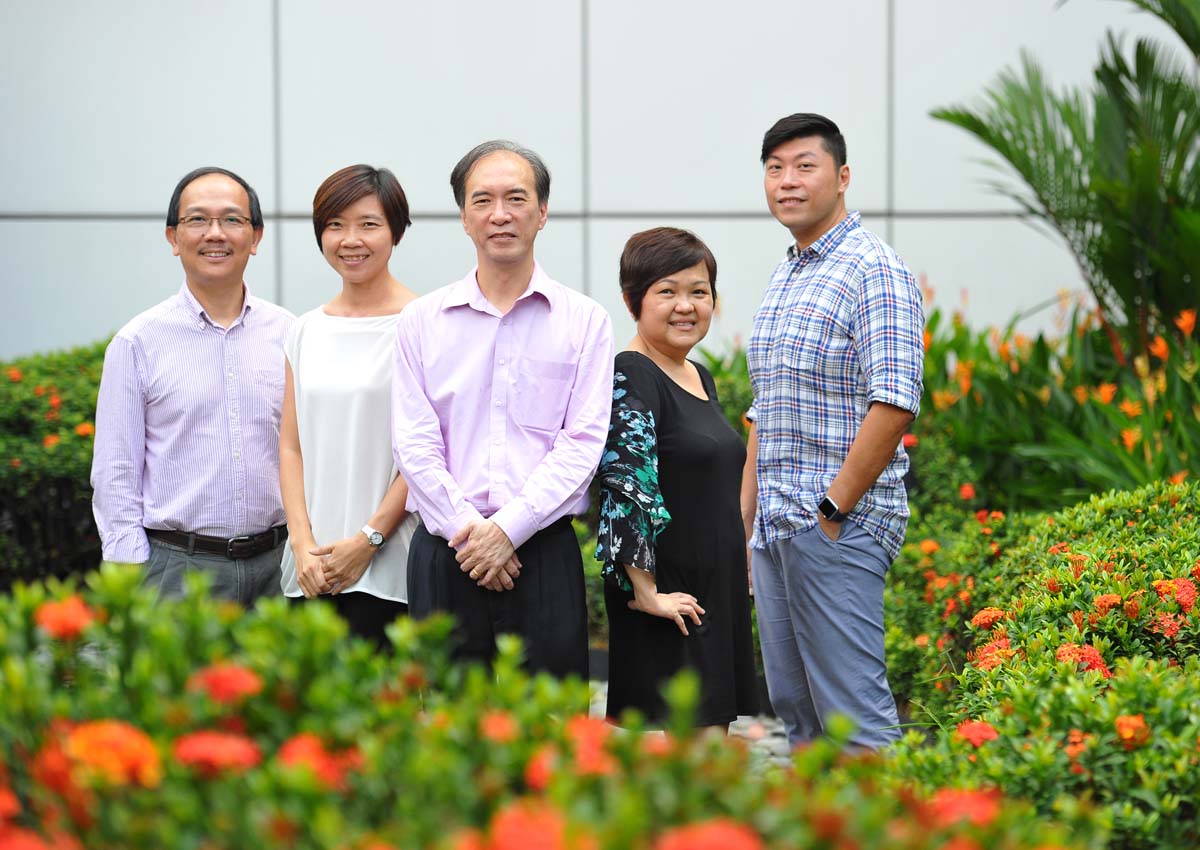Given his previous work experience, one might not expect Mr Darren Thng to end up working for a community hospital.
The 46-year-old, now a manager in the chief executive’s office at Bright Vision Hospital, had been managing a German subsidiary in China that built musical fountains.
But he now puts his experience to good use in a different setting.
“I used to oversee the operations of the whole company, but now I assist the CEO and director in running the hospital,” said Mr Thng, who came back to Singapore a year ago. “The managerial skills are almost the same, but the services we provide are different.”
The Agency for Integrated Care (AIC), which coordinates healthcare services for seniors here, helps mid-career professionals like Mr Thng with the transition to new jobs in the community care sector.
Through its Senior Management Associate Scheme started this year, the agency hopes to attract professionals, managers, executives and techniciansto join the sector.
Participants attend a training programme that provides an overview of the sector, as well as short-term attachment programmes with community care groups. For instance, they join volunteers in delivering meals to seniors who live alone and accompany patients on hospital visits.
The AIC then follows up on their progress. Seven people who joined the sector – including Mr Thng – have gone through the training.
Ms Teo Sio Hoon, chief of intermediate- and long-term care at the AIC’s manpower development and resourcing division, said professionals with managerial and operational experience are in demand, given the growing community care sector, which includes community hospitals and senior care centres.
“The programme is meant to prepare and assimilate them into their new jobs,” she said. “Coming from a corporate background, you may realise that you have all the work skills, but the setting in this sector is very different.
“In a corporation, the bottom line is the key thing, but in community care, while we are conscious of cost, the welfare of patients is more important in making decisions.”
Last week, Health Minister Gan Kim Yong said more healthcare workers will be needed with the expansion of primary and community care. To build a stronger local core in the healthcare sector, training and recruitment will be expanded to enable young job seekers and mid-career entrants, among others, to get work in healthcare.
Mr Soon Cheok Seng, 58, who previously worked as a senior business analyst for Motorola, said the training helped him to understand the nature and expectations of his current job.
Mr Soon, now IT manager at Ling Kwang Home for Senior Citizens, said: “The focus is different. If you want to work in this sector, you have to realise it’s more about giving back to society. Pay becomes secondary.”
Bright Vision Hospital CEO Chua Puay Hian said Mr Thng and Ms Doris Tan, 55, who both underwent the training and now work at the hospital, are doing well. “We are happy that both have had extensive work experiences across Singapore and Asia and are putting their work and life skills to good use here,” he said.
New healthcare network launched
A new network made up of groups such as hospitals and universities was launched on Friday to tackle Singapore’s healthcare challenges.
The new Centre for Healthcare Innovation Co-Learning Network will bring local and overseas institutions together to deal with challenges sparked by the country’s ageing population and slowing labour force growth. A total of 21 partners have joined the network led by Tan Tock Seng Hospital and the National Healthcare Group.
The initiative will focus on training healthcare workers differently so they can support the move from hospital to community care, said Minister of State for Health and Communications and Information Chee Hong Tat, who announced the network on Friday.
The group, which will meet a few times a year, will also look at how robotics can be used so that healthcare workers can focus on more important tasks to meet the needs of patients.
Tsao Foundation, a non-profit family foundation focused on ageing issues, hopes to bring in a community perspective of the patient and caregiver so that hospitals and healthcare staff can learn how to better care for them.
Separately, the Centre of Healthcare Innovation that was announced in 2014 will be ready in 2018. The training and medical hub will feature living labs and training facilities, among others.
kcarolyn@sph.com.sg

This article was first published on October 24, 2016.
Get a copy of The Straits Times or go to straitstimes.com for more stories.






